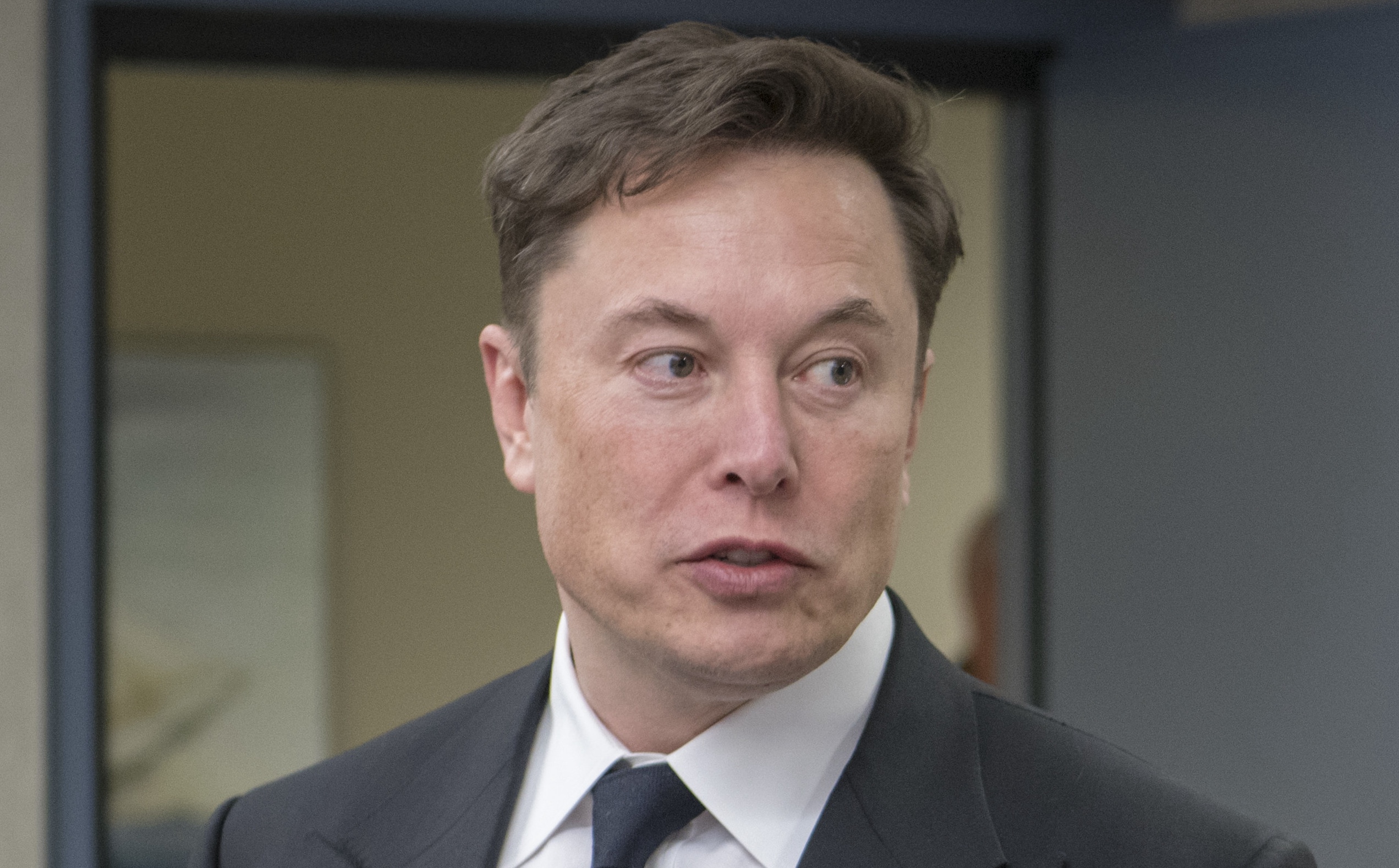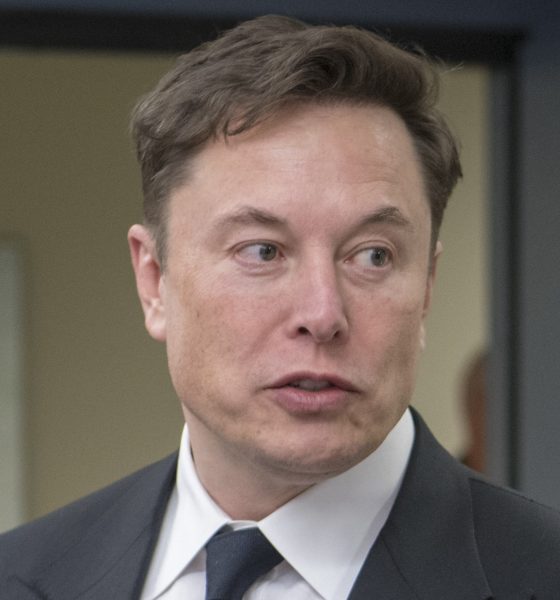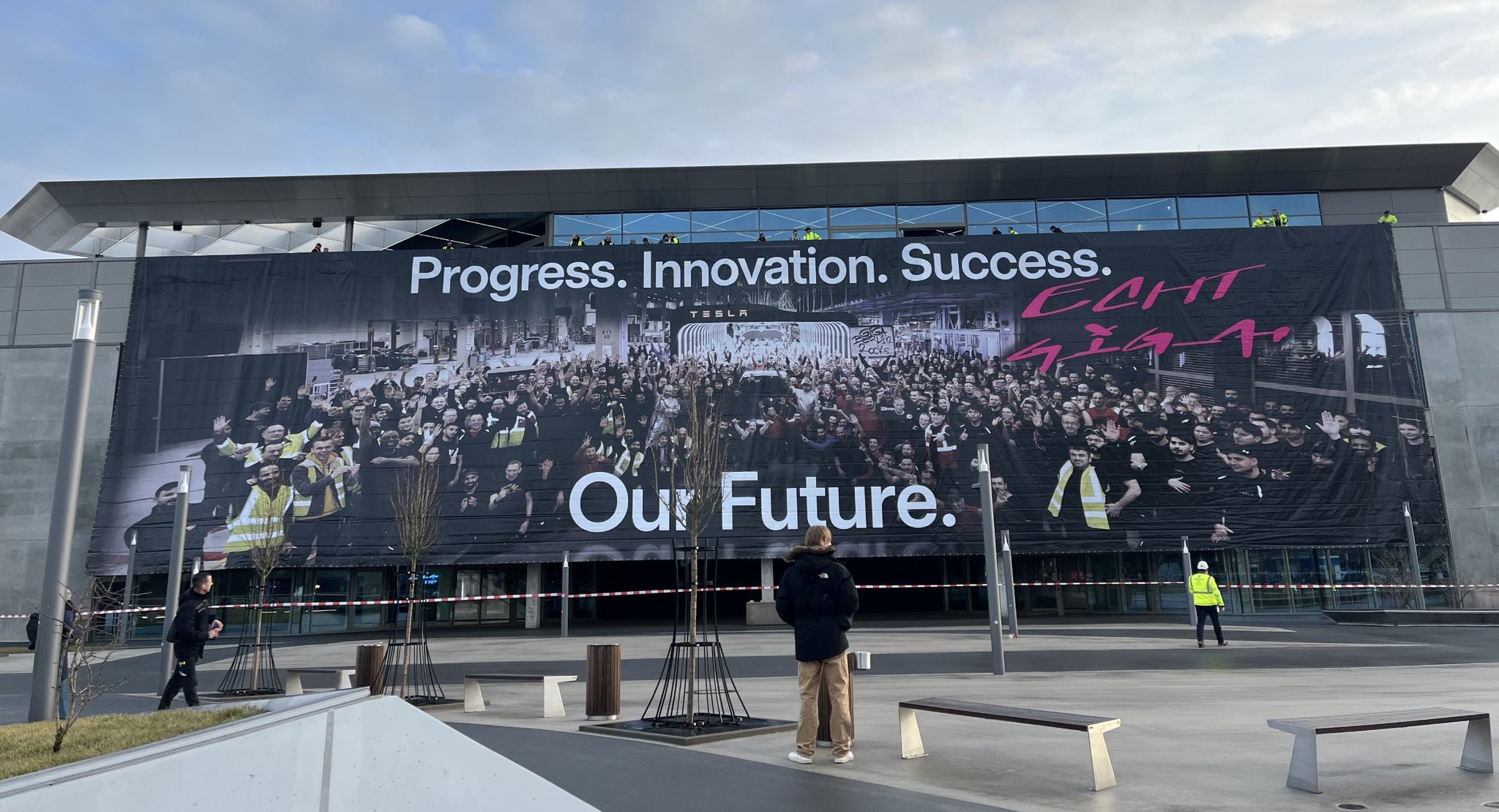

News
Musk responds to pay case lawyers requesting $6 billion in Tesla shares
Elon Musk has responded to lawyers in the recent Delaware case regarding his Tesla compensation package, after the attorneys this week requested legal awards of 29 million Tesla shares — worth almost $6 billion.
Musk’s pay package at Tesla was rejected in late January by Judge Kathaleen McCormick of the Delaware Court of Chancery, as part of a 2018 case brought forward by shareholder Richard Tornetta. Following the decision to void Musk’s $55.8 billion compensation package just over a month ago, Tornetta’s lawyers argued in a filing on Friday that they deserve over 29 million Tesla shares as their legal fees, worth around $5.95 billion at the company’s current valuation (via Bloomberg).
In the filing, the lawyers also explained why they requested the fee in Tesla stock instead of cash.
“We are prepared to ‘eat our cooking,’” Tornetta’s lawyers wrote. “This structure has the benefit of linking the award directly to the benefit created and avoids taking even one cent from the Tesla balance sheet to pay fees. It is also tax-deductible by Tesla.”
Tornetta’s case was brought to the court on behalf of shareholders, so roughly 267 million Tesla shares that would have been a part of Musk’s pay package are now expected to be returned to the company, according to the filing.
Tulane University Corporate Law Professor Ann Lipton says the legal team’s payout could be the largest attorney fee ever requested, at least that she’s familiar with.
“Now, to be fair, the case involved the largest compensation award ever to an executive,” Lipton added to Bloomberg.
“I assume the plaintiffs’ attorneys figured if they sought $6 billion in cash in fees it could cripple Tesla,” she says. “Since the case involved a stock award to Musk, they thought it would be appropriate to ask for the fee in shares so it wouldn’t be as rough for Tesla shareholders. That makes a lot of sense to me.”
Following the filing, multiple Tesla executives responded, including Musk himself.
In a flurry of posts on X on Saturday, Musk criticized the request, calling it “utterly disgraceful,” “ironic,” “criminal,” and saying that the the lawyers were “evil” in two separate replies. You can see just a couple of his posts below.
The lawyers who did nothing but damage Tesla want $6 billion. Criminal. https://t.co/JI6eQPTxQ2
— Elon Musk (@elonmusk) March 2, 2024
The system is broken.
Best to get out of Delaware as soon as possible possible.
— Elon Musk (@elonmusk) March 2, 2024
Rohan Patel, Tesla’s Vice President of Public Policy and Business Development, also responded to the reports, noting that he believed other employees at the company would be “equally disgusted” by the news.
Nearly every single @Tesla employee is an owner/shareholder of the company. Tens of thousands of them have had a life-changing experience as a result of the company/stock growth. Some truly inspiring stories…our employees work very hard and are positively changing multiple… https://t.co/gB9WlVlTG2
— Rohan Patel (@rohanspatel) March 2, 2024
After Judge McCormick’s decision to void Musk’s compensation package, made on January 30, the multi-company executive has motioned to move the incorporations of SpaceX, The Boring Company and Neuralink out of Delaware, and he’s expected to do the same with Tesla.
Musk has also been outspoken since the decision, noting that Tesla plans to appeal the decision and pointing to how much the lawyers representing Tornetta could profit from this trial. In response to an early February report, Musk said it was “so deeply and utterly wrong that a law firm that harmed Tesla could stand to gain billions.”
THIS TIME LAST YEAR:
Elon Musk’s lawyers to make closing arguments in CEO’s pay package case
What are your thoughts? Let me know at zach@teslarati.com, find me on X at @zacharyvisconti, or send your tips to us at tips@teslarati.com.

Elon Musk
xAI’s Grok approved for Pentagon classified systems: report
Under the agreement, Grok can be deployed in systems handling classified intelligence analysis, weapons development, and battlefield operations.

Elon Musk’s xAI has signed an agreement with the United States Department of Defense (DoD) to allow Grok to be used in classified military systems.
Previously, Anthropic’s Claude had been the only AI system approved for the most sensitive military work, but a dispute over usage safeguards has reportedly prompted the Pentagon to broaden its options, as noted in a report from Axios.
Under the agreement, Grok can be deployed in systems handling classified intelligence analysis, weapons development, and battlefield operations.
The publication reported that xAI agreed to the Pentagon’s requirement that its technology be usable for “all lawful purposes,” a standard Anthropic has reportedly resisted due to alleged ethical restrictions tied to mass surveillance and autonomous weapons use.
Defense Secretary Pete Hegseth is scheduled to meet with Anthropic CEO Dario Amodei in what sources expect to be a tense meeting, with the publication hinting that the Pentagon could designate Anthropic a “supply chain risk” if the company does not lift its safeguards.
Axios stated that replacing Claude fully might be technically challenging even if xAI or other alternative AI systems take its place. That being said, other AI systems are already in use by the DoD.
Grok already operates in the Pentagon’s unclassified systems alongside Google’s Gemini and OpenAI’s ChatGPT. Google is reportedly close to an agreement that will result in Gemini being used for classified use, while OpenAI’s progress toward classified deployment is described as slower but still feasible.
The publication noted that the Pentagon continues talks with several AI companies as it prepares for potential changes in classified AI sourcing.
Elon Musk
Elon Musk denies Starlink’s price cuts are due to Amazon Kuiper
“This has nothing to do with Kuiper, we’re just trying to make Starlink more affordable to a broader audience,” Musk wrote in a post on X.

Elon Musk has pushed back on claims that Starlink’s recent price reductions are tied to Amazon’s Kuiper project.
In a post on X, Musk responded directly to a report suggesting that Starlink was cutting prices and offering free hardware to partners ahead of a planned IPO and increased competition from Kuiper.
“This has nothing to do with Kuiper, we’re just trying to make Starlink more affordable to a broader audience,” Musk wrote in a post on X. “The lower the cost, the more Starlink can be used by people who don’t have much money, especially in the developing world.”
The speculation originated from a post summarizing a report from The Information, which ran with the headline “SpaceX’s Starlink Makes Land Grab as Amazon Threat Looms.” The report stated that SpaceX is aggressively cutting prices and giving free hardware to distribution partners, which was interpreted as a reaction to Amazon’s Kuiper’s upcoming rollout and possible IPO.
In a way, Musk’s comments could be quite accurate considering Starlink’s current scale. The constellation currently has more than 9,700 satellites in operation today, making it by far the largest satellite broadband network in operation. It has also managed to grow its user base to 10 million active customers across more than 150 countries worldwide.
Amazon’s Kuiper, by comparison, has launched approximately 211 satellites to date, as per data from SatelliteMap.Space, some of which were launched by SpaceX’s Falcon 9 rocket. Starlink surpassed that number in early January 2020, during the early buildout of its first-generation network.
Lower pricing also aligns with Starlink’s broader expansion strategy. SpaceX continues to deploy satellites at a rapid pace using Falcon 9, and future launches aboard Starship are expected to significantly accelerate the constellation’s growth. A larger network improves capacity and global coverage, which can support a broader customer base.
In that context, price reductions can be viewed as a way to match expanding supply with growing demand. Musk’s companies have historically used aggressive pricing strategies to drive adoption at scale, particularly when vertical integration allows costs to decline over time.
News
Tesla Giga Berlin makes a statement of solidarity amid IG Metall conflict
The display comes as tensions between Tesla and IG Metall continue to escalate.

Tesla Giga Berlin is sending a strong message of solidarity amid its ongoing legal dispute with German union IG Metall.
In a post on social media platform X, Giga Berlin plant manager André Thierig shared an image of the facility’s lobby covered with a large banner that reads: “Progress. Innovation. Success.” He added that the slogan reflects what the facility has stood for since Day One.
“Our lobby at Giga Berlin covered in a huge banner these days. Progress. Innovation. Success – this is what we stand for since we started production in 2022 and how we will go into our future!” Thierig wrote in his post on X.
The display comes as tensions between Tesla and IG Metall continue to escalate.
The dispute began after Tesla accused a union representative of secretly recording a works council meeting at Giga Berlin. Tesla stated that it filed a criminal complaint after the alleged incident. Police later confirmed they had seized a computer belonging to an IG Metall member as part of their investigation.
“What has happened today at Giga Berlin is truly beyond words! An external union representative from IG Metall attended a works council meeting. For unknown reasons he recorded the internal meeting and was caught in action! We obviously called police and filed a criminal complaint!” Thierig wrote on X at the time.
IG Metall denied the accusation and characterized Tesla’s move as an election tactic ahead of upcoming works council elections. The union subsequently filed a defamation complaint against Thierig. Authorities later confirmed that an investigation had been opened in connection with the matter.
Giga Berlin began production in 2022 and has since become one of Tesla’s key European manufacturing hubs, producing the Model Y, the company’s best-selling vehicle. The facility has expanded capacity over the past years despite environmental protests, labor disputes, and regulatory scrutiny.








